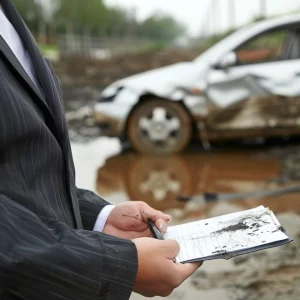When it comes to hosting a gathering in Texas, the festivities often include the serving of alcoholic beverages. While this can add to the celebratory atmosphere, it also introduces a level of responsibility that extends beyond the typical duties of a host.
In Texas, social host liability laws are in place to address the legal repercussions that individuals may face if they serve alcohol, particularly to minors, at private events. These laws not only aim to deter underage drinking but also to hold hosts accountable for the actions of their guests. Understanding these laws is crucial for anyone planning to host an event in the Lone Star State, as the consequences of noncompliance can be severe.
Understanding the Basics of Social Host Liability
Social host liability refers to the legal responsibility of a person who furnishes alcohol at a social gathering. Unlike general liability laws, which can apply to a wide range of situations, social host liability specifically addresses scenarios where alcohol is served. This form of liability is particularly important as a measure to combat the dangers associated with underage drinking and the potential for alcohol-related accidents.
The Legal Framework of Social Host Liability in Texas
The cornerstone of social host liability in Texas is found in the Texas Alcoholic Beverage Code 2.02, which outlines the circumstances under which a social host can be held liable for damages caused by an intoxicated minor. To be considered liable, several conditions must be met:
- The social host must have provided alcohol to a minor who is under 18 years of age.
- The host is not the parent or guardian of the minor served.
- The alcohol was knowingly served, or the host allowed the minor to consume it on their property.
It’s important to distinguish these laws from dram shop laws, which apply to commercial establishments like bars and restaurants. While dram shop laws can hold such businesses accountable for serving minors or overserving adults, social host laws focus on private, non-commercial settings and are limited to incidents involving minors.
Who Can Be Held Liable Under Social Host Laws?
In Texas, the criteria for social host liability are specific. Adults over the age of 21 can be held liable if they serve or provide alcohol to a minor under the age of 18. It’s essential to note that this liability does not extend to situations where the minor is a child or ward of the host. The law explicitly requires that the host must have knowingly served alcohol to the minor or allowed the minor to consume alcohol on their premises.
Consequences of Violating Social Host Laws
Failing to adhere to social host liability laws can lead to significant legal repercussions. Violation of these laws is considered a Class A misdemeanor, and the penalties can include up to one year in jail and fines reaching up to $4,000. Beyond criminal charges, hosts may also face civil lawsuits if the minor they served causes an injury, damage, or death due to intoxication. These civil cases can seek compensation for a range of damages, including medical expenses, lost wages, property damage, and pain and suffering.
For victims of accidents involving intoxicated minors, legal recourse is available through experienced law firms such as Adley Law Firm, which specializes in representing those injured by drunk drivers.
Scenarios and Examples
To illustrate how social host liability laws can play out, consider a scenario where a minor named John attends a party hosted by an adult, Sarah. At this party, Sarah serves John alcoholic beverages despite knowing he is under 18. Later that night, John is involved in a car accident that results in injuries to another party. Under Texas social host liability laws, the injured party can potentially sue not only John but also Sarah for providing the alcohol that contributed to his impaired state.
Social Host Liability and Drug-Related Incidents
In Texas, the prohibition on underage drinking at social gatherings is paralleled by stringent laws against controlled substances. If a host is found to have constructively possessed drugs—that is, had the right to control them and was aware of their presence at the party—they can be charged even without physical possession. The penalties for drug-related offenses are severe, with possession of even a small amount of marijuana leading to substantial fines and potential jail time.
Protecting Yourself as a Host
To minimize the risks associated with serving alcohol at a private event, hosts should take proactive steps to ensure the safety of their guests and protect themselves from potential liability. Here are some best practices to consider:
- Verify Ages: Always check identification to confirm the age of guests consuming alcohol.
- Hire Professional Bartenders: Inform hired bartenders that they have the authority to refuse service to anyone they suspect has had too much to drink.
- Provide Alternatives: Offer non-alcoholic beverages and food to help mitigate the effects of alcohol consumption.
- Arrange Transportation: Encourage the use of designated drivers, ride-sharing services, or provide a place for guests to stay overnight if they are unable to safely drive home.
Additionally, it’s crucial to understand your insurance coverage. Homeowners insurance policies may include liability coverage that can protect you in the event of an accident. However, if you charge a fee for alcohol at your event, you might be considered a provider, not just a host, which can affect your liability.
Legal Representation and Advice
If you find yourself under investigation or facing charges related to social host liability, it’s imperative to seek legal guidance immediately. An experienced attorney can help you navigate the complexities of the law and work towards favorable outcomes, such as charge reduction or dismissal.
For those in need of legal representation, Adley Law Firm offers expertise in personal injury law, including cases involving drunk driving accidents. Their team can provide personalized advocacy to ensure your rights are protected throughout the legal process.
Additional Considerations for Hosts
When hosting a party at a restaurant or bar, it’s important to remember that the establishment may be held liable for any damages caused by an intoxicated driver who was served on their premises. Texas law requires these businesses to assess the sobriety of their customers and refuse service if necessary.
If property damage occurs during a party, the host can ask the guest responsible to file a claim with their homeowner’s insurance. The liability portion of the guest’s policy may cover the damages.
Hosting a Safe Party
Safety should always be the top priority when hosting a party. To ensure a safe environment:
- Set Clear Rules: Communicate your expectations regarding alcohol consumption to your guests.
- Monitor Guest Behavior: Keep an eye on guests’ alcohol intake and behavior throughout the event.
- Be Prepared to Intervene: Have a plan in place to handle situations where a guest may become overly intoxicated or disruptive.
By taking these precautions, you can help prevent accidents and reduce the risk of being held liable under social host laws.
Conclusion
Social host liability laws in Texas serve as a reminder of the significant responsibilities that come with serving alcohol at private events, especially where minors are concerned. By understanding these laws and taking steps to mitigate risks, hosts can provide a safe and enjoyable experience for their guests while protecting themselves from legal repercussions.
If you or someone you know has been affected by an incident involving an intoxicated minor, the legal team at Adley Law Firm is prepared to offer the necessary support and representation to navigate the aftermath of such events.
Remember, when it comes to alcohol at your event, it’s better to be safe than sorry. Hosting responsibly can make all the difference in ensuring a successful gathering and maintaining the well-being of all involved.












